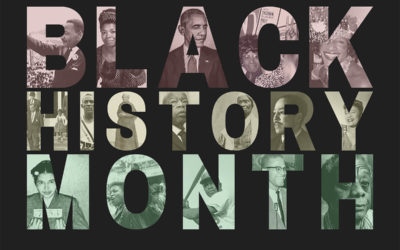Source: The Hollywood Reporter
As much as the film industry (if not everybody else living in the nation) would like to think otherwise, the COVID-19 pandemic that had begun its wrath on the world last year is not over yet. Despite the availability of vaccines in just about every part of the country, many people have yet to be vaccinated. Although some states have had better luck with disease containment than others, the virus, most notably its Delta variant, remains a significant danger, with some states seeing even higher case numbers than in the previous year, when a vaccine was only in the development stages and not yet accessible to most. Many experts are anticipating that COVID will continue to have an effect on the nation during the fall season (a time of the year when the spread of disease in general is more prominent). This is forcing many governments and businesses to take action and prepare for the worse. For the film industry, this means a lot of push-backs and strategy changes, many of which might not be the most profitable but are nonetheless the most necessary.
One tactic that is starting to be enforced onto movie theaters by local governments is the requirement of a vaccine card for anyone who seeks to go to the movies. Leading the charge is New York City, which will mandate that anyone attending a live event or performance in one of the city’s countless indoor venues (movie theaters included) must have an authentic vaccine card and photo ID, or else otherwise be barred from entering the building. This order is expected to go into effect immediately, coming in just before a series of inspections and an increase of more direct enforcement on September 13th. Although the mandate is restricted to only the city of New York (one of the nation’s largest movie-going markets), several other cities and municipalities across the nation are considering similar measures, hoping to do everything in their power to combat the spread of COVID.
Despite these measures potentially reducing the number of people that are able to attend a screening of any given movie, many theater chains seem to have accepted what is being mandated, expressing optimism that it won’t have too much of a negative impact on their profits. “Most scientific experts tell you the virus will increase in winter compared with summer, but the big change between this winter and last winter is vaccinations,” claims AMC CEO Adam Aron, whose company currently has thirteen venues in New York City alone. “Fortunately, the number of vaccinations, especially among the most vulnerable populations, has been so extensive that we’re optimistic that we won’t see the kind of lockdown of society this winter that we saw last.” John Fithian, president of the National Association of Theater Owners (NATO), expressed similar thoughts when claiming that his organization will not object to these newly placed mandates. “Working through how we implement it and how we deal with the economics are challenges,” Fithian states but we’re not going to oppose it, because people need to get vaccinated.”
Regardless of whether or not local governments will enforce vaccine card requirements, theaters and the studios who produce the movies intended to be played in them may still struggle to turn a profit, and the most recent box office results show just how uncertain the near future of cinema truly is. On the one hand, Disney/20th Century Studios’ video-game-inspired “Free Guy”, starring “Deadpool” star Ryan Reynolds, opened to around $28 million during its first weekend in theaters. While this is higher than what was expected by industry analysts (who had anticipated an opening weekend no higher than $20 million), it’s still lower than what a major Hollywood blockbuster is expected to make under normal conditions. It’s also worth noting that unlike Disney’s previous works, including “Black Widow” and “Jungle Cruise”, “Free Guy” is only available to see in theaters right now and not for an additional charge on Disney+. With only ticket sales to provide the film a source of revenue, there could still be a significant amount of money loss by the end of its theatrical run.
Not wanting to subject themselves to such losses, many studios are starting to reconsider their release schedule and change the way they intend to release certain films. One of the most notable major studios to make headlines with such reorganization is Sony, which is finding a variety of different ways to release their products as profitably as possible. One of its biggest upcoming releases, for example, is the superhero film “Venom: Let There Be Carnage”, which Sony has chosen to push back from its September release date to one later in October. A more recent (and arguably more drastic) change, however, is the decision to pull its upcoming animated comedy “Hotel Transylvania: Transformania” from theaters and sell it to Amazon, where it will be available for in-home streaming on Amazon Prime. Given the film’s target audience is primarily under the age of twelve (a demographic that cannot currently receive a vaccine), watching the film in a theater could pose a risk of infection for any number of such viewers, so moving the film to streaming was probably the safest possible move Sony could make.
Whether or not these announcements are the result of personal corporate decision-making or enforcement by government officials, they are all solid evidence that there is still much more work that needs to be done in order to bring the COVID-19 pandemic closer to an end. Many are hopeful that those who have yet to be vaccinated will be encouraged to do so by these new developments, but with the conditions of autumn providing an even more perfect environment for the Coronavirus to thrive and create new variants, taking major risks right now is not necessarily in most people’s best interests.




